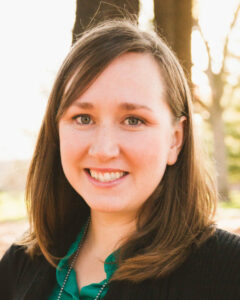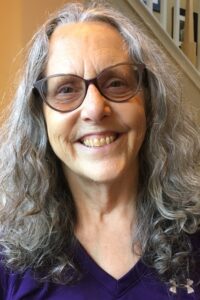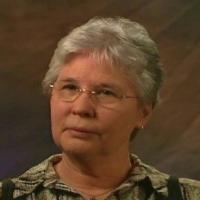
New Courses starting January 2024-2025
Healing Concentration with Aadya Murshida
Classes will meet one Saturday a month at 6pm PST. (Please adjust your timing) Dates for the term of classes follow: Sept. 21, Oct. 19, Nov. 16, Dec. 21, Jan. 18, Feb. 15, Mar. 15, Apr. 19, May 17, 2025. There are no classes during the months of June, July and August. For further information please write; Aadya Murshida at sufimovementusa@gmail.com
In this series the Healing Class Gathering will be dedicated to the preparation of ourselves as healing instruments for the benefit of the extended community. Classes focus on mental purification, generating healing magnetism, breath control, and Sacred phrases which will be used to focus the healer on those in need. “Consciously or unconsciously every being is capable of healing himself/herself or others. This instinct is born in insects, birds, and beasts, as well as human beings. All these find their own medicine and heal themselves and each other in various ways.” (Hazrat Inayat Khan, Vol. IV: Sufi Message, p. 83)
The ultimate purpose of the class is a guide for “the healer who must be confident of their at-oneness with the Divine within, and during the time of healing one should most assuredly feel the perfection of the Almighty working through one’s intention, thus absolutely losing the thought of the individual self” (Hazrat Inayat Khan, Vol IV: Sufi Message, p. 91)
Sept 28, 2024-May 24, 2025 World Religious Study and Ministry taught by Aadya Murshida (Dr.Perez-Chisti) and Dr. Adeeba Ruh Meyer
Special registration will be needed for this class as members who register will be preparing for ordination. If you are interested to be a part of this two-year program please contact: Aadya Murshida at sufimovementusa@gmail.com or Adeeba Ruh at maryerm@gmail.com
The Sufi study of World Religions leads to an expanded ability to serve many members of the community through ritual service such as found in the Universal Worship created by Hazrat Inayat Khan in 1922. His purpose was to establish a ceremony in which all the religions of the world were respected. In the design of a ritual, Sacred Scriptures were placed upon an altar and a candle was lit to honour the different prophets and the light of wisdom they have brought to the world. With his disciples such as Murshida Rabia Martin and Murshida Sophia Saintsbury Green, the service increased in scope while reaching many members in Europe and the United States.
Today Sufi ministry expands from the performance of the Sufi Universal Worship ritual to activism that serves the different needs of people who are facing challenges. As a student expands in greater ethical, historical, and cultural awareness they are encouraged to offer services in hospitals, hospice centers, prisons, clinics, adoption centers, and food distribution agencies that help those who are homeless. The Sufi minister (Cherag/Chearaga) serves others maintaining a tolerant and respectful acceptance of another’s belief system and cultural background. The goal of the World Religious study program is to develop ministers of deep spiritual direction and dedication who have a broad range of techniques and religious acumen to deal with the diverse belief systems of all people. The training goes for a period of twenty-four weeks after which ordination is given.
There are three aspects to Sufi Ministry: 1) Spiritual Practice, 2) Required Study, 3) and an understanding of The First Objects of Sufism which is to realize and spread the knowledge of unity, the religion of love and wisdom, so that the bias of faiths and beliefs may of itself fall away, the human heart may overflow with love, and all hatred caused by distinctions and differences may be rooted out.
- Spiritual Practice: The individual student’s spiritual practice is a requirement for the course. It is expected that a person remains involved in their dedicated path while learning the mystical path of Sufism. One’s practice should embrace levels of concentration, contemplation, meditation as well as some level of breath-work. It is most important to have some understanding of the psychological states of being as well. Some students might have to consider taking other courses that bring insight and understanding into the psychological process and the human psyche. These practices are meant to help expand a learner’s knowledge base and prepare them to serve members of the extended community.
- The Required Study: The World Religious Scriptures will be required as primary texts. Questions will be assigned to each month’s lesson and will be for the deepening purpose of inquiry and understanding. It is from one’s responses that the individual begins to perceive the value and depth of the Sacred text. All questions and readings will be examined through the mystical insight of Hazrat Inayat Khan’s great work published in the Sufi Message Volumes: The Unity of Spiritual Ideals.
- Understanding the First Moral of Sufism: If anyone asks what Sufism is, and what kind of religion it is, the answer is that Sufism is the religion of the heart, the religion that shows primary importance to seeking God in the heart of humankind. The way is to recognize the Divine Source in all beings, the second is to be considerate toward every person with whom we come into contact, and the third is to be mindful of our thoughts, words, and actions. “Human personality is very delicate,” indicates Hazrat Inayat Khan, “the more living the heart the more sensitive it is; but that which causes sensitivities is the love element existing and love is God. The person whose heart is not sensitive; his/her heart is not living, it is dead. In that case, the divine spirit is buried in the heart. A person who is always concerned with his own feelings is so absorbed in him/herself that they have no time to think of others. That person’s whole attention is taken up with their own feeling. They pity themselves and worry about their own pain, and they are never open to sympathizing with others. The one who takes notice of the feelings of others with whom they come into contact practices the one essential moral of Sufis, and that is the love which springs forth from self-denial and blooms in deeds of beneficence. “
- A fee for the class will be assigned per registration
*******************************
Gatha Study Class with Aadya Murshida
In this class, we will study and contemplate the Esoteric writings of Murshid Hazrat Inayat Khan. The class will meet online once a month starting Sept. 14 at 6 pm PST and goes through May 10, 2025. The classes meet online on the following dates: Sept 14, Oct. 12, Nov. 9, Dec. 14, Jan. 11, Feb. 8, Mar. 8, Apr. 12, May 10, 2025. All mureeds need to register ahead for this class. June, July, and August no classes will be given. This class is for initiated Mureeds of the Sufi Message only. The class has no fee but all donations are welcomed as they support the work of the Message and the Sufi Universal Fraternal Institute.
**************************************************************************************************************************************************
FOLLOWING ARE COMMENTS BY STUDENTS OF THE MYSTICISM AND WORLD RELIGIONS CLASS. Reverend Adeeba Mary Meyer, Ph.D., LMFT, wrote a reflection on one of the contemplative exercises given in our Mysticism and World Religions Course online:

What in me lives? What in me dies? My body will turn back to ash, my thoughts will scatter, my emotions will settle back to earth, my words will only echo so long, my work will return to rest, my breath will be stilled, my soul does not belong to me, my spirit is the breath of God.
The life that breathes me continues to move. Breathing out now, will again breathe in. That life collects my parts, pulling them together, like gravity, for its purposes, playing with the possibilities, an artist living joyfully in Her creation.
That breath moves, and my soul is alive. the only proof, here, of its existence–the love it leaves behind in its stroke. The only way I know I exist–the only way I have life, breath, soul, body, mind, energy–the only thing that keeps me together, the only thing that gives me life, the only thing I AM, if I am anything, is Love–
Love–the movement of God, the life unending, the only being, the was, and is, and is to come.
I am love’s art. I have no other existence but in the mind of my creator, who sees my beauty as an extension of Her own and wishes for me to be, so I live, and move, and have my being in Her.
I am not my own, but Her’s. I die; She lives. She breathes me into existence and out again as She chooses. In all names, in all forms, in all beings, in all life. If there is a ‘me’ at all, it is the space between her ever-dancing, ever-loving lines.
Reverend (Cheraga) Sophia Katherine Jensen, RN. offered her perspective on The Study of World Religions Class

Three years ago, I began a two-year course of study in the world’s many religions and spiritual traditions. I have always been interested in diversity of spiritual paths and what feels like an innate calling amongst many of the human species to seek some form of divinity in their lives. I expected to learn much. I was surprised at how the class was as much about opening the heart of the student as it was a key to intellectual learning.
I studied “World Religions” during my college years. I have studied through life experiences and my own personal seeking. Never before was I given the opportunity to delve so deeply, not only into individual spiritual paths, but also into my connections and disconnections with each. In doing so, a bridge spontaneously spanned the abyss, suspended judgement and opened my heart in unexpected ways.
As a result, when I was then offered the opportunity to study World Religions again, this time online, rather than in a classroom, yet connected visually through Zoom, and with the same instructor I worked with in the class previously described, I welcomed the opportunity. I cannot recommend this class more highly.
The online format did not lessen the connection between Teacher and Student, nor between students, as we conversed, face-to-face during our classes. We were assigned three text books, two of which I would never have discovered on my own, and the insight offered by these authors and the discussion their works provoked, broke my mind and heart wide open.
Most of the class agreed that one of the texts, His Religion and Hers, by Charlotte Perkins Gilman and published in 1923, should be required reading for all. Though The Battle For God, A History of Fundamentalism, by Karen Armstrong, which looks at Judaism, Christianity and Islam, is a more difficult read, the “Afterward,” is life-changing.The final text, Volume IX in the Sufi Message of Hazrat Inayat Khan, speaks to the intent of the class in its very title, The Unity of Religious Ideals.
We are not often blessed with the opportunity this class offers. I would take it again. I would welcome the discussion and challenges in the presentation of differing points of view, heart and mind-expanding possibilities to know both yourself and the Paths we choose to follow with greater clarity.
The class was led by Aadya Murshida Ana Perez-Chisti, Ph.D., President of SUFI and Senior teacher of Inter-religious studies in America
Sister Laura Hammel offered her perspective on the World Religions Class

While surfing the web, I came across the International Sufi Website at: https://sufiuniversalfraternalinstitute.live. I became curious about the Sufi tradition and decided to take the online course World Religions taught by Aadya Murshida Ana Perez-Chisti, Ph.D., President of SUFI and senior teacher of inter-religious studies in America.
In our present world, religion can be a very contentious practice rather than a unifier. Sufism believes all religions have truths to reveal to humanity. I wanted to learn how Sufism saw the harmony and unity in all religions.
The class studied three books. In the first book, Karen Armstrong’s The Battle for God, A History of Fundamentalism, we read how and why fundamentalist groups came into existence in Judaism, Christianity and Islam, and what these fundamentalists wanted to accomplish. What was particularly interesting to me was Armstrong’s analysis of the growth of fundamentalism as a resistance to modernity, innovation, and science. She points out that fundamentalism is still very strong with us today.
The second book we read is the classic, His Religion and Hers, by Charlotte Perkins Gilman published in 1923. In her book Gilman critiques organized religion and points out the effects and consequences that a male-constructed religion has on everyday life. She argues the ways a male driven ideology has produced a religion focused on death and discourages any attention to the improvement of life on earth.
The third book we read was Volume IX in the Sufi Message of Hazrat Inayat Khan, The Unity of Religious Ideals. This volume is the focus of the class since it offers a spiritual path of unity to help us appreciate the rich treasures in each of the great religions, Judaism, Christianity and Islam. For me, this approach to the world’s religions and hearing the great voices of each of these Abrahamic faiths give me hope and joy, especially in our turbulent times when so often the differences between faiths rather than their similarities are emphasized.
